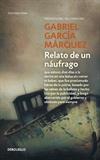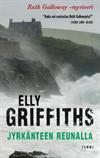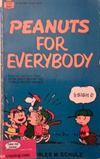
Water Is Wide, The
2 journalers for this copy...
The island is nearly deserted, haunting, beautiful. Across a slip of ocean lies South Carolina. But for the handful of families on Yamacraw island, America is a world away. For years the people here lived proudly from the sea, but now its waters are not safe. Waste from industry threatens their very existence–unless, somehow, they can learn a new life. But they will learn nothing without someone to teach them, and their school has no teacher.
Here is PAT CONROY’S extraordinary drama based on his own experience–the true story of a man who gave a year of his life to an island and the new life its people gave him.
Here is PAT CONROY’S extraordinary drama based on his own experience–the true story of a man who gave a year of his life to an island and the new life its people gave him.
It arrived today with a bunch of "all American" books. This was the only one I haven't heard of before. Looking forward to it!
Journal Entry 4 by Xana at Bruxelles / Brussel, Bruxelles / Brussel Belgium on Friday, September 24, 2010
It was a great read, quick-paced and beautiful. The Southern accents just popped out of the page (Gawd!) and the generous amount of cursing and politically-incorrectness made it fresh and real.
It’s an account of Conroy’s year (1969-70) teaching on Daufuskie Island (called Yamacraw in the book), South Carolina. The island had no bridge to the main land and treacherous waters made the crossing by boat a risky business, so at that time it was almost completely isolated. The big majority of the population was black, poor and not surprisingly received a sub-standard education. As Conroy describes it:
It is not a large island, nor an important one, but it represents an era and a segment of history that is rapidly dying in America. The people of the island have changed very little since the Emancipation Proclamation. Indeed, many of them have never heard of this proclamation.
Conroy’s students are between 10 and 13 years old and early on he finds out that of the 18 children in his class, 18 did not know what country they lived in, the name of their president, or what ocean that surrounded their beach; some couldn’t read or write, recognize the alphabet, write their names, count to ten or add 2 + 2. What Conroy understood after the initial shock was that he had before him an empty slate and that normal teaching techniques did not apply.
The one great knave that I hunted was boredom, and if I caught him lurking anywhere in the room, in corners, by blackboards, behind the covers of books, or in glazed, anesthetized eyes, we went to something else quickly, shifted in midstream, danced, sang, fought, or milked rats.
He invented games, organized karaoke sessions, planted a garden, teaches them to swim, took them on field trips to his home-town and Washington, D.C., asked friends and family to come and speak to the class and generally made his students realize there’s a world beyond the shores of Yamacraw. I loved the scene when Conroy gets them interested in classical musical. His students start to recognize several tunes and they realize that contrary to popular belief, they can learn. The book has many of these touching scenes. On the road-trip to Washington, one of the students asks about the lines on the road, something we all take for granted:
To Jasper, who was accustomed to unpaved roads, they represented something strange, unexplained, and beyond his framework of experience. For the rest of the trip Barbara and I decoded road signs, billboards, and numbers painted on bridges and overpasses. Things I had not noticed for ten years now assumed great significance. I regretted that I could not be making this trip with the freshness of insight and beautiful innocence of Jasper and the others. I regretted that I was old, that I could no longer appreciate the education afforded by an American highway, and that I could not grasp the mystery of a single line painted down a road going north.
Being a story about a white progressive teacher in the South in the late 60s, this is also a portrait of the early days of integration, of the struggle between a new generation committed to change and the resistance of the old-guard, fighting to maintain the status-quo. Conroy himself admits his own journey from a casual but eager teen racist (“Those were the years when the word nigger felt good to my tongue”) to the committed liberal of his teaching days. Like him, in the book we see other people making this journey, with more or less difficulty.
The only reason this isn’t a 5/5 is because the last chapters shifted too much away from the kids and the island, into Conroy’s own battle against the established powers. He actually admits he wrote The Water is Wide to give his own account of what happened in the island and the injustices done to him. This isn’t a story of miracles and at the end of the book Conroy questions if he ever made an impact in his student’s lives. I don’t doubt for a minute he did.
I really liked how the book ended – a good last paragraph is a thing of beauty: “Of the Yamacraw children I can say little. For them I leave a single prayer: that the river is good to them in the crossing.“
This book brough back memories of my early school days, in what only many years later I realized was a very problematic neighbourhood. I don’t think what Conroy faced is dated or only due to racial segregation, but like him I do passionately believe that education is the only way towards equally - every type of equality.
It’s an account of Conroy’s year (1969-70) teaching on Daufuskie Island (called Yamacraw in the book), South Carolina. The island had no bridge to the main land and treacherous waters made the crossing by boat a risky business, so at that time it was almost completely isolated. The big majority of the population was black, poor and not surprisingly received a sub-standard education. As Conroy describes it:
It is not a large island, nor an important one, but it represents an era and a segment of history that is rapidly dying in America. The people of the island have changed very little since the Emancipation Proclamation. Indeed, many of them have never heard of this proclamation.
Conroy’s students are between 10 and 13 years old and early on he finds out that of the 18 children in his class, 18 did not know what country they lived in, the name of their president, or what ocean that surrounded their beach; some couldn’t read or write, recognize the alphabet, write their names, count to ten or add 2 + 2. What Conroy understood after the initial shock was that he had before him an empty slate and that normal teaching techniques did not apply.
The one great knave that I hunted was boredom, and if I caught him lurking anywhere in the room, in corners, by blackboards, behind the covers of books, or in glazed, anesthetized eyes, we went to something else quickly, shifted in midstream, danced, sang, fought, or milked rats.
He invented games, organized karaoke sessions, planted a garden, teaches them to swim, took them on field trips to his home-town and Washington, D.C., asked friends and family to come and speak to the class and generally made his students realize there’s a world beyond the shores of Yamacraw. I loved the scene when Conroy gets them interested in classical musical. His students start to recognize several tunes and they realize that contrary to popular belief, they can learn. The book has many of these touching scenes. On the road-trip to Washington, one of the students asks about the lines on the road, something we all take for granted:
To Jasper, who was accustomed to unpaved roads, they represented something strange, unexplained, and beyond his framework of experience. For the rest of the trip Barbara and I decoded road signs, billboards, and numbers painted on bridges and overpasses. Things I had not noticed for ten years now assumed great significance. I regretted that I could not be making this trip with the freshness of insight and beautiful innocence of Jasper and the others. I regretted that I was old, that I could no longer appreciate the education afforded by an American highway, and that I could not grasp the mystery of a single line painted down a road going north.
Being a story about a white progressive teacher in the South in the late 60s, this is also a portrait of the early days of integration, of the struggle between a new generation committed to change and the resistance of the old-guard, fighting to maintain the status-quo. Conroy himself admits his own journey from a casual but eager teen racist (“Those were the years when the word nigger felt good to my tongue”) to the committed liberal of his teaching days. Like him, in the book we see other people making this journey, with more or less difficulty.
The only reason this isn’t a 5/5 is because the last chapters shifted too much away from the kids and the island, into Conroy’s own battle against the established powers. He actually admits he wrote The Water is Wide to give his own account of what happened in the island and the injustices done to him. This isn’t a story of miracles and at the end of the book Conroy questions if he ever made an impact in his student’s lives. I don’t doubt for a minute he did.
I really liked how the book ended – a good last paragraph is a thing of beauty: “Of the Yamacraw children I can say little. For them I leave a single prayer: that the river is good to them in the crossing.“
This book brough back memories of my early school days, in what only many years later I realized was a very problematic neighbourhood. I don’t think what Conroy faced is dated or only due to racial segregation, but like him I do passionately believe that education is the only way towards equally - every type of equality.
Journal Entry 5 by Xana at Quelque part dans le canton de Genève in Genève, Genève Switzerland on Tuesday, October 13, 2020
Released 3 yrs ago (10/1/2020 UTC) at Quelque part dans le canton de Genève in Genève, Genève Switzerland
WILD RELEASE NOTES:
In the neighbourhood sharing box, Rue Liotard.
 This Book is Currently in the Wild!
This Book is Currently in the Wild!





